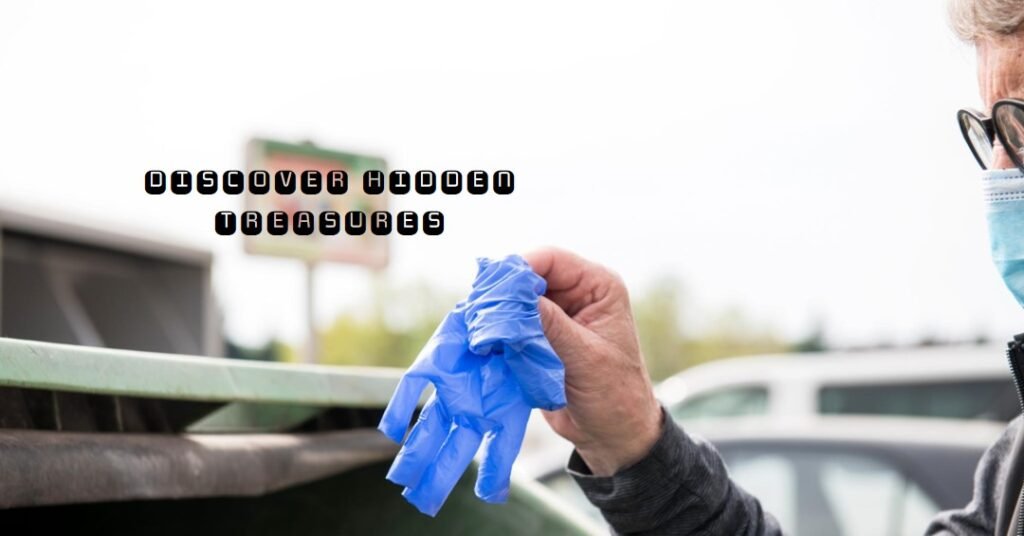Dumpster diving is a practice where individuals search through dumpsters or trash bins to find items that have been discarded but are still useful. In South Australia, dumpster diving is often carried out by those looking for food, clothing, electronics, or other items that can be salvaged or repurposed. This activity is usually done in urban areas where there is a higher likelihood of finding discarded items of value.
Is dumpster diving illegal in South Australia?
In South Australia, dumpster diving is considered a legal grey area. While there are no specific laws that prohibit dumpster diving, individuals engaging in this activity may still be subject to trespassing or theft laws if they enter private property or take items without permission. It is important for dumpster divers to be mindful of their surroundings, obtain consent when necessary, and respect the property rights of others while engaging in this practice. It is recommended to exercise caution and discretion when dumpster diving in South Australia to avoid potential legal issues.
Is dumpster diving illegal at nighttime in South Australia?
Dumpster diving at nighttime in South Australia is a legal grey area, similar to daytime diving. While specific laws don’t explicitly forbid the activity, caution must be exercised. Individuals should refrain from trespassing on private property or removing items without permission to avoid potential legal consequences.
Property ownership laws
Property ownership laws in South Australia dictate that individuals must respect the property rights of others when dumpster diving. Entering private property without consent or taking items without permission can lead to legal issues related to trespassing or theft. Dumpster divers should be aware of these laws and always seek permission when accessing private dumpsters or bins.
By staying informed about South Australian laws and respecting property rights, individuals can engage in dumpster diving responsibly while minimizing the risk of legal complications.
Respecting private property boundaries
South Australia’s property ownership laws emphasize the importance of respecting individuals’ property rights when participating in dumpster diving activities. Trespassing on private property or taking items without permission can result in legal consequences related to theft or trespassing. Dumpster divers should be aware of these laws and always seek permission before accessing private dumpsters or bins. Respecting private property boundaries is crucial to ensure that individuals can engage in dumpster diving practices without violating any legal statutes.

Public Perception and Community Impact
Public perception of dumpster diving varies, with some individuals viewing it as a form of resourcefulness and recycling, while others may see it as a nuisance or illegal activity. Those in favor of dumpster diving often appreciate the opportunity to find usable items and reduce waste. On the other hand, concerns may arise about the cleanliness and safety of items retrieved from dumpsters, leading to negative attitudes towards the practice. It is essential for individuals engaging in dumpster diving to be mindful of public perception and to abide by local laws to avoid negative impacts on the community.
Environmental concerns and waste management
Dumpster diving can have implications for waste management and the environment. By salvaging items from dumpsters, individuals may contribute to reducing landfill waste and promoting a more sustainable approach to consumption. However, concerns exist about the potential spread of contaminants or hazardous materials from discarded items. Proper waste disposal practices and recycling efforts are crucial to address environmental concerns related to dumpster diving. Community members and authorities should work together to ensure a balance between resource recovery and environmental protection.
Best Location for Dumpster diving in South Australia?
South Australia offers a variety of locations that are ideal for dumpster diving, a practice where individuals search through dumpsters or trash bins for discarded but still useful items.
- Supermarkets and Grocery Stores: These locations are excellent for dumpster diving due to the surplus of discarded but edible food items, including packaged goods, fresh produce, and more. This practice helps reduce food waste and promotes sustainable consumption.
- Electronic Stores and Retailers: Dumpster diving at these locations can yield functional electronic gadgets, appliances, or accessories, like laptops, smartphones, and chargers. This not only benefits the diver but also contributes to reducing electronic waste disposal.
- Apartment Complexes and Residential Areas: Apartment dumpsters can be a treasure trove for items like furniture, electronics, and household goods. Residents often discard items during moves or renovations, providing an opportunity for divers to find useful items.
- Office Buildings: Offices may dispose of office supplies, electronics, and furniture, especially during renovations or relocations. Dumpster diving in these areas can yield items that are still functional and in good condition.
- Construction Sites: Construction sites often discard materials such as wood, metal, and other building supplies. Dumpster divers interested in repurposing materials for DIY projects or construction can find valuable items here.
- Educational Institutions: Universities, schools, and colleges may discard textbooks, office supplies, and electronics. Dumpster diving in these locations can provide educational resources and materials.
- Retail Stores: Retail stores, including clothing, home goods, and hardware stores, may discard unsold or damaged items. Divers can find clothing, appliances, and other goods that are still usable.
- Restaurants and Cafes: These establishments often discard food items, kitchen equipment, and furniture. Dumpster diving at these locations can provide food and resources for those in need or looking to reduce waste.
- Recycling Centers: While not strictly dumpster diving, recycling centers can be a valuable resource for salvaging materials that can be repurposed or recycled.
- Charity Collection Bins: Donation bins for clothing and household items can sometimes yield useful items that have been discarded but are still in good condition.
Remember, it’s important to prioritize safety and respect property rights when dumpster diving. Always obtain permission when necessary and be mindful of any legal restrictions or private property boundaries.

Tips for Responsible Dumpster Diving
When engaging in dumpster diving, it is important to prioritize safety precautions and hygiene practices. Individuals should wear gloves and sturdy shoes to protect themselves from sharp objects or potential contaminants. It is advisable to carry hand sanitizer or wipes to maintain cleanliness while handling items retrieved from dumpsters. Additionally, inspecting items carefully before taking them and being cautious of broken glass or other hazards can help prevent injuries during the process.
Ethical considerations
Dumpster divers should also consider ethical implications when scavenging for items. Respecting private property rights and avoiding trespassing are essential aspects of responsible dumpster diving. It is crucial to only take items that are clearly discarded and not to cause any damage or disturbance to the surrounding area. Practicing good etiquette, such as resealing trash bags after inspection and not leaving a mess behind, demonstrates respect for the environment and the community. By upholding ethical standards, dumpster divers can minimize negative impacts and promote a positive perception of their activities in the community.
Case Studies and Precedents
In past incidents related to dumpster diving, individuals have faced various challenges and consequences. Safety hazards such as cuts, infections, and exposure to harmful substances have been reported due to inadequate precautions. Moreover, ethical dilemmas have arisen when individuals trespassed on private property or took items without proper consent. These incidents highlight the importance of prioritizing safety measures and ethical considerations to avoid potential risks and legal issues while engaging in dumpster diving.
How much money can you make from dumpster diving in South Australia?
In South Australia, the amount of money one can make from dumpster diving varies depending on multiple factors. The value and condition of items found, such as electronics, furniture, or clothing, can influence potential earnings. Some individuals have reported making a significant income by selling salvaged items online or at flea markets. However, it is essential to note that income from dumpster diving may be inconsistent and not guaranteed.
Factors like competition from other divers, local regulations, and the time invested in the activity can impact the financial outcomes of dumpster diving in South Australia. It is advisable to research local laws and market demands to determine the profit potential before embarking on dumpster diving as a source of income. But people are making 300$ to 900$ approximately.

Advocacy and Awareness
Campaigns promoting sustainable consumption aim to raise awareness about reducing waste and making environmentally conscious choices. They advocate for practices like recycling, upcycling, and minimizing single-use items to lessen the strain on the environment. Through educational initiatives and community engagements, these campaigns encourage individuals to be mindful of their consumption habits and their impact on the planet.
Activism for food waste reduction
Activism focused on reducing food waste addresses the significant amount of food discarded globally. Activists work towards implementing strategies such as redistributing surplus food to those in need, supporting local food banks, and advocating for better food storage practices. By highlighting the environmental, social, and economic implications of food waste, activists aim to influence policies and behaviors that combat this issue for a more sustainable future.
Conclusion
Dumpster diving in South Australia exists in a legal grey area, with no specific laws prohibiting the activity but individuals may still be subject to trespassing or theft laws if they enter private property or take items without permission. It’s essential for dumpster divers to be mindful of their surroundings, obtain consent when necessary, and respect the property rights of others to avoid potential legal issues. Additionally, responsible dumpster diving involves prioritizing safety precautions, hygiene practices, and ethical considerations, while also being aware of environmental concerns and waste management implications.
While the potential earnings from dumpster diving can vary, it’s advisable to research local laws and market demands before engaging in this activity for profit. Overall, dumpster diving can be a resourceful and sustainable practice when done responsibly and ethically, contributing to waste reduction and promoting a positive perception in the community.
Find Dumpster diving legality in your city
Choose your city to find all the details about the legality of dumpster diving in Australia:

Greetings, eco-conscious explorers! I am Arjun Bandari, a seasoned Dumpster Diving enthusiast with over a decade of expertise in uncovering hidden treasures amidst the discarded. My journey into this unconventional lifestyle began in New York, fueled by a passion for sustainability and a desire to challenge the norms of our throwaway culture.
With a bachelor’s in Enviromental Health and Safety, I seamlessly blend academic insights with practical experiences to navigate the world of Dumpster Diving. Over the years, I’ve become a recognized figure in the sustainable living community, sharing my discoveries and insights through workshops, community outreach, and various online platforms.
My commitment to promoting eco-friendly practices has garnered attention from local and regional media, earning me featured spots in publications that highlight the environmental impact of Dumpster Diving. As an advocate for responsible waste management, I have been honored with awards recognizing my contributions to the field.
In addition to my hands-on experiences, I’ve extended my reach through various published works, shedding light on the untapped potential within discarded items. Whether it’s repurposing furniture, salvaging electronics, or sharing practical tips for fellow Dumpster Diving enthusiasts, I am dedicated to inspiring a conscious and sustainable way of living.
Join me on this exciting journey as we redefine the narrative around waste, discover hidden gems, and collectively contribute to a greener, more sustainable future. Together, let’s dive into the world of Dumpster Diving and uncover the beauty beneath the surface of our disposable society.

